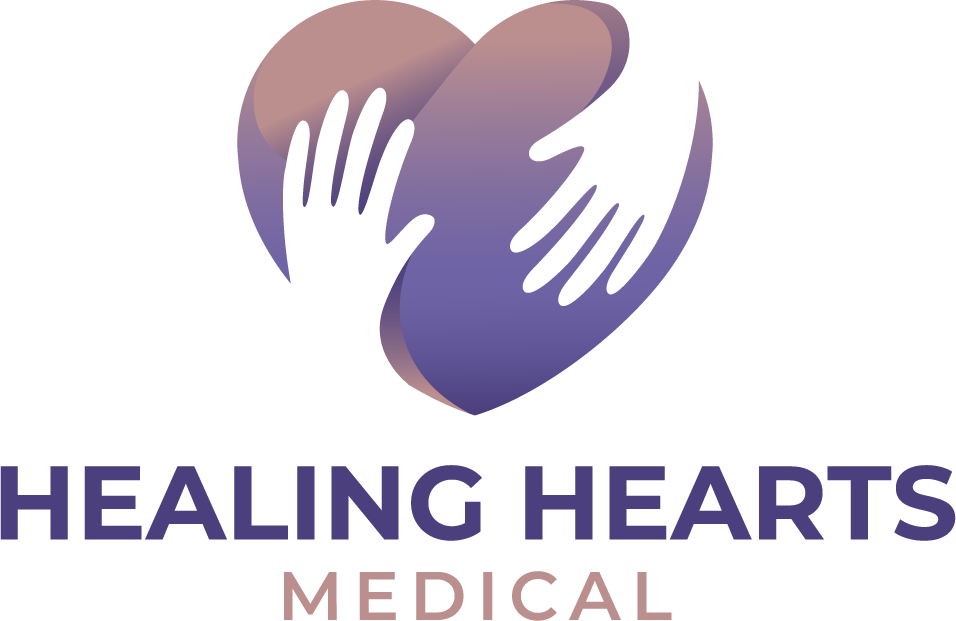When you leave the hospital, those first 30 days are essential for your recovery. It’s normal to feel a mix of emotions, and managing medications and follow-up appointments can feel overwhelming. This period requires focus on understanding your care plan and ensuring your home is safe. With the right support from healthcare providers and family, you can navigate this shift smoothly. But what are the key elements to watch for during this important time?
Understanding the Transition From Hospital to Home
Steering the shift from hospital to home can feel overwhelming, but understanding the process can help ease this essential stage in your recovery journey. You’re not alone in experiencing a mix of patient emotions, anticipation, relief, and even anxiety about returning to your home environment. It’s perfectly normal to feel this way, and acknowledging these emotions is the first step in managing them. Your home environment should be prepared to support your recovery, focusing on comfort, safety, and accessibility. Think about rearranging furniture for smoother mobility or making sure medication is easily accessible. Open communication with your healthcare team guarantees you understand your care plan thoroughly. Remember, each step you take towards a familiar home environment is a step towards healing and independence.
Identifying the Risks Associated With Inadequate Transitional Care

When you leave the hospital, it’s essential to guarantee a smooth shift to avoid increased readmission rates. You may worry about medication management, which can be complex and lead to safety concerns if not handled properly. By addressing these risks, you can feel more secure and supported during your recovery at home.
Increased Readmission Rates
Even though leaving the hospital can feel like a relief, it marks the beginning of an essential phase in recovery that demands careful attention. Without meticulous discharge planning, you might face increased readmission rates, which can hinder your healing journey. Identifying potential readmission triggers is critical. You should know that factors like medication errors, lack of follow-up appointments, or unclear care instructions can lead to setbacks. Engaging in thorough transitional care guarantees that you’re not left managing this period alone. It’s essential to communicate openly with your healthcare team, understand your care plan, and confirm any questions you have are answered. Remember, being proactive now can greatly reduce the likelihood of returning to the hospital prematurely.
Patient Safety Concerns
While moving from hospital to home, patient safety concerns shouldn’t be overlooked, as inadequate shift care poses considerable risks. You might find that without proper transitional care, there’s an increased chance of complications. It’s essential to be aware of potential risks like falls, infections, or even worsening of conditions. Patient awareness plays a critical role in identifying these risks early. Make sure that you’re informed about your specific needs to minimize potential hazards.
Family involvement is equally important in maintaining safety. They can help monitor your health and make certain that follow-up appointments are attended. Encourage open communication with healthcare providers to address any uncertainties. By fostering a supportive environment, you can markedly reduce the risks associated with inadequate transitional care and promote a safer recovery.
Medication Management Issues
Shifting from hospital to home, you may encounter significant challenges with medication management that can compromise your recovery. Without proper medication reconciliation, the risk of errors increases, leading to potential complications. You might find discrepancies in your medication list, making it essential to confirm each drug with your healthcare provider. Dosage adjustments are often necessary as your condition changes, and neglecting these can impact healing.
Here’s a quick overview of potential issues:
| Risk | Impact |
| Missing Medication | Delays in recovery |
| Incorrect Dosage | Adverse effects |
| Unreconciled Changes | Confusion and errors |
| Inadequate Follow-up | Prolonged health issues |
Stay vigilant, ask questions, and make sure you have a clear understanding of your medication regimen to support your shift and well-being.
The Role of Healthcare Providers in Post-Discharge Planning
Although moving from hospital to home can be challenging, healthcare providers play an essential role in crafting an effective post-discharge plan. They focus on your needs and guarantee seamless care coordination. By prioritizing discharge planning, they help prevent readmissions and enhance recovery. Here’s how they assist you:
- Coordinate with various specialists to align your care requirements and streamline communication.
- Develop a personalized discharge plan that includes follow-up appointments and home care instructions.
- Educate you and your family about medication management and recognize symptoms that need immediate attention.
- Facilitate access to community resources, such as support groups and rehabilitation services, enhancing your support system.
Your healthcare providers are dedicated to guiding you through this shift with empathy and thorough planning, setting you on the path to recovery.
The Impact of Comprehensive Transitional Care Programs
You’ll find that extensive changeover care programs play an essential role in making your recovery smoother by greatly lowering readmission rates. These programs focus on enhancing patient outcomes by ensuring you have the support and resources you need when moving home. They also coordinate care teams effectively, so everyone involved in your care is on the same page, working together for your well-being.
Reducing Readmission Rates
When you leave the hospital, the journey to recovery doesn’t end at your discharge; it merely shifts to a new phase where thorough care becomes vital. Understanding readmission triggers is essential in reducing your risk of returning to the hospital. Thoughtful discharge planning can make a significant difference in your recovery. By focusing on extensive transitional care programs, you can avoid setbacks and embrace a healthier future.
Consider these key components:
- Clear communication: Make sure you fully understand your discharge instructions and medication regimen.
- Follow-up appointments: Schedule and attend all necessary follow-ups with your healthcare providers.
- Home care support: Utilize available resources like home health services or caregiver assistance.
- Education on symptoms: Learn to recognize and respond to warning signs early.
Empower yourself with knowledge and support for smoother recovery.
Enhancing Patient Outcomes
Thorough changeover care programs are essential in enhancing patient outcomes by bridging the gap between hospital discharge and home recovery. You deserve a seamless shift, minimizing stress and confusion. Through patient engagement and timely follow-up appointments, these programs guarantee you’re not left alone in your recovery journey.
| Key Elements | Benefits | Patient Experience |
| Patient Engagement | Boosts confidence | Feel supported |
| Follow-up Appointments | Identifies issues early | Prevents setbacks |
| Personalized Plans | Customized care | Meets individual needs |
Coordinating Care Teams
While moving from hospital to home, a well-coordinated home care team is essential in guaranteeing your recovery is both smooth and effective. Care coordination and team collaboration are at the heart of successful supportive care programs. Your team should include professionals who work together to address your specific needs. This collaboration guarantees everyone’s on the same page, reducing the risk of readmission and promoting a healthier recovery.
- Communication: Keeping you informed and involved in your care plan.
- Medication Management: Making sure you understand your prescriptions and schedules.
- Follow-Up Appointments: Scheduling and reminders to keep you on track.
- Home Support: Providing resources or referrals for home health services.
These coordinated efforts guarantee you receive personalized, thorough care customized to your journey back to health.
Strategies for Effective Communication and Coordination
Effective communication and coordination play an essential role in guaranteeing a smooth change from hospital to home care. During care transitions, you’ll need clear communication strategies to prevent any misunderstandings and make sure your needs are met. Start by establishing open lines of communication with your healthcare team. This involves asking questions, sharing concerns, and confirming that you understand the care plan. Encourage your team to use plain language, avoiding medical jargon that can be confusing. Regular check-ins, whether through phone calls or digital platforms, help keep everyone on the same page. Make certain you have contact information for your primary care provider and any specialists involved. This proactive approach guarantees you’re supported, reducing stress and promoting a seamless change.
The Importance of Patient and Family Education
Understanding the importance of patient and family education is key to a successful recovery after leaving the hospital. When you’re well-informed, you feel more empowered to manage your health. Involving your family in this process can provide the support you need to follow through with care plans. Here’s how education helps:
- Patient empowerment: Knowledge about your condition enables you to make informed decisions.
- Family involvement: Educated family members can better assist with your recovery and offer emotional support.
- Medication management: Understanding your prescriptions reduces the risk of errors.
- Lifestyle adjustments: Awareness of necessary lifestyle changes facilitates better long-term health outcomes.
Monitoring and Managing Post-Discharge Complications

Even after leaving the hospital, your journey to recovery isn’t over, and it’s crucial to actively monitor and manage any potential complications that might arise post-discharge. Healthcare providers are your allies in post-discharge monitoring. They’ll guide you in recognizing signs of complications such as infections or medication side effects. Keep track of your symptoms, jot down any changes, and don’t hesitate to reach out if something feels off. Remember, your intuition is valuable. Complication management is critical, so attend follow-up appointments and adhere to prescribed treatments. These steps can prevent minor issues from becoming serious. Your proactive involvement promotes a smoother progression and a healthier recovery path.
Long-Term Benefits of Successful Transitional Care
Recovering from a hospital stay doesn’t stop at managing immediate post-discharge complications; it opens the door to the long-term benefits of successful shift care. By investing in thorough post-discharge support, you can greatly enhance your long term health. You’ll find yourself better equipped to maintain wellness, avoid readmissions, and build resilience. Here’s how dedicated transitional care helps:
- Prevents future complications: Proactive planning reduces the risk of setbacks.
- Improves medication management: Guarantees you follow your prescribed regimen correctly.
- Strengthens patient education: Increases understanding of your health conditions and self-care strategies.
- Encourages lifestyle adjustments: Guides you towards healthier habits that support recovery.
Frequently Asked Questions
What Are Common Challenges Patients Face During the First 30 Days Post-Discharge?
You might struggle with medication management and attending follow-up appointments. It’s vital to organize your medications properly and schedule appointments promptly to guarantee your recovery progresses smoothly. Overcome these challenges by seeking support and staying informed.
How Can Technology Be Used to Enhance Transitional Care After Hospital Discharge?
You can enhance changeover care by using telehealth tools and mobile applications to track your recovery, schedule follow-ups, and communicate with healthcare providers. These technologies empower you by providing support and ensuring you’re never alone in your journey.
What Resources Are Available to Support Caregivers During the Transitional Care Period?
You can find caregiver support through community resources like local support groups, online forums, and respite care services. They provide emotional support, practical advice, and sometimes even temporary relief from caregiving duties, ensuring you’re not overwhelmed.
How Does Transitional Care Differ for Patients With Chronic Versus Acute Conditions?
You’ll notice shifting care varies considerably. Chronic management requires ongoing support, focusing on long-term stability. Acute recovery, meanwhile, prioritizes immediate, intensive interventions to restore health quickly. Both need a personalized approach, ensuring the patient’s specific needs are met.
What Role Do Insurance Companies Play in Supporting Transitional Care Services?
Insurance companies support your changeover care by providing coverage for essential services. They coordinate care, ensuring you receive follow-up appointments, medication management, and home health resources, aiming to reduce readmissions and improve your recovery experience.
Conclusion
As you navigate the first 30 days after leaving the hospital, remember you’re not alone. Prioritize clear communication with your healthcare team and engage your family in the process. Stay on top of medication management, follow-up appointments, and home safety to minimize risks. Support from professionals like Healing Hearts Medical Home Health Care can make a significant difference during this critical time, offering skilled care, guidance, and reassurance right in your home. By focusing on education and monitoring, you can prevent complications and promote healing. Embrace this journey with patience and determination, knowing that effective changeover care, especially with the right support, can set the foundation for long-term wellness.

